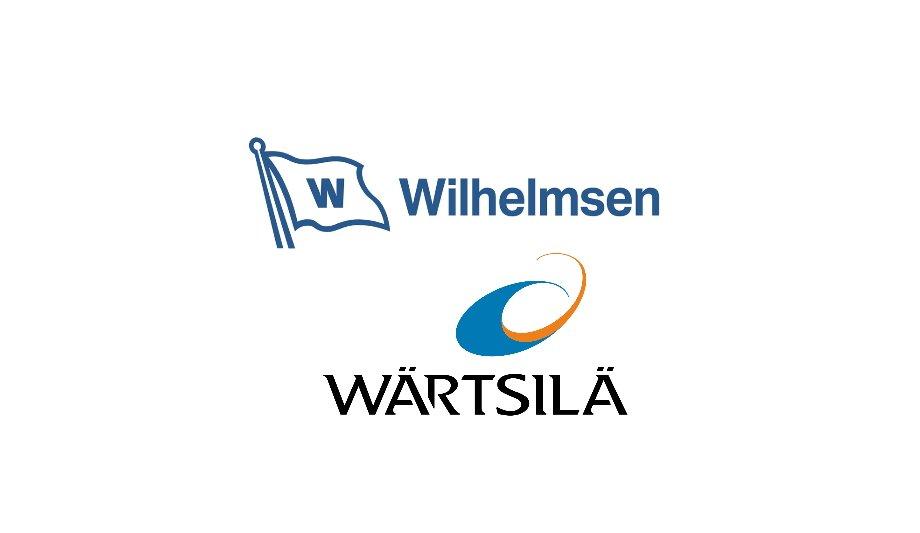Manufacturing engines that power a third of the world’s largest cargo ships Wärtsilä often needs to fabricate specialist tools to solve problems and optimise efficiencies with its equipment onboard. The lifting tool is one such example.
It is critical to building and servicing large engines, allowing engineers to move immensely heavy engine parts, such as pistons.
The perfect partner
Typically, such parts are both expensive and time-consuming to manufacture and deliver, and the Wilhelmsen and ThyssenKrupp, with their joint effort in optimising the delivery of 3D printed parts, were the right partners to experiment new possibilities when bringing parts to the maritime market.
Keen to realise the enormous potential of additive manufacturing for the maritime market, the ongoing collaboration with ThyssenKrupp, and recently announced a joint venture with the German industrial group, means Wilhelmsen is ideally placed to optimise the production and delivery of 3D printed spare parts.
Reducing lead times
Taking just a couple of weeks, rather than the months, the last mile delivery by drone is an added bonus Utilising industry-leading 3D design and fabrication dramatically reduces lead times. Taking just a couple of weeks, rather than the months an original spare part would have taken to arrive, the last mile delivery by drone is an added bonus, further speeding up the process.
A very clear proof of concept, the successful nighttime delivery establishes a solid foundation for potential future collaboration between the innovative engine manufacturer and Wilhelmsen.
"We are very excited to embark on this journey with Wärtsilä. This milestone marks the future of supply chain for the maritime industry and our customers, that are now experiencing a solution that is faster, better and greener,” says Håkon Ellekjær, Head of Venture, 3D Printing, Wilhelmsen.
Lighter, stronger, faster
Reducing the weight of the part, from the 9kg of the original, which is machined out solid steel, down to just 2kg for the 3D printed version, the new version is manufactured from carbon fibre.
While the new version is easier, lighter, and safer to use onboard, it sacrifices nothing in terms of strength or durability and is both Class and Type Approved.
Smart approach to manufacturing technologies
“This represents an outstanding example of how Wärtsilä’s smart approach to manufacturing technologies opens new possibilities not only for manufacturing but also to better servicing the customers. The tool process creation is faster, less costly, with very high-quality standards and safe but clearly reduces the need for stock and allows just-in-time production processes and service support like the one we tested."
"Such success wouldn’t have been possible a few years ago, the differentiator compared to the past has been the capability to exploit emerging technologies combining them to generate immediate value,” says Giuseppe Saragò, Director, Smart Technology Hub, Manufacturing Excellence, Wärtsilä Marine Power.
New design benefits
The modular nature of the design means any damaged parts can be switched out easily and the complete part can be disassembled The new design splits the tool into various separate parts to best leverage continuous carbon fiber reinforcement and enabled the lifting tool to lift a 240kg engine piston at the first time of asking. In addition, the modular nature of the design means any damaged parts can be switched out easily and the complete part can be disassembled and packed down for shipment.
This makes dramatic nighttime deliveries to vessels by drone a reality as the payload of these is limited in terms of weight and size.
Game-changer for maritime industry
“On-demand manufacturing will be a true game-changer for the maritime industry. The 3D printed lifting tool from Wärtsilä is a great showcase of the benefits provided by 3D printing, offering shorter lead times, improved part performance and reduced carbon footprint."
"Delivering the part by drone supports the value proposition, reducing the cost of last mile delivery, time, and CO2 emissions. We are excited to be part of the Wilhelmsen 3D printing program, and we are looking forward to sharing more success stories from this partnership,” says Sim Teck Siang, Procurement Manager, Berge Bulk.
